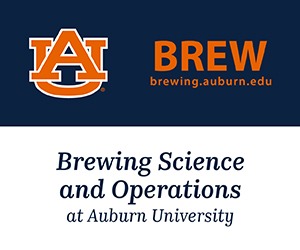Marble Beers’ Manchester Bitter clone
Marble Beers’ Manchester Bitter clone
(5 gallons/19 L, all-grain)
OG = 1.042 FG = 1.011
IBU = 42 SRM = 5 ABV = 4.2%
Ingredients
4.1 lbs. (1.9 kg) Simpsons extra pale malt
4.1 lbs. (1.9 kg) Simpsons pale malt
5.3 oz. (150 g) crystal malt (10 °L)
2.6 oz. (74 g) Munich malt
2.3 oz. (65 g) crystal malt (40 °L)
0.7 oz. (20 g) melanoidin malt
12.4 AAU CTZ hops (60 min.) (0.8 oz./23 g at 15.5% alpha acids)
0.8 oz. (23 g) Ekuanot® hops (0 min.)
1 oz. (28 g) Comet hops (0 min.)
LalBrew Nottingham or White Labs WLP039 (East Midlands) yeast
¾ cup corn sugar (if priming)
Step By Step
Mash your grains at 149 °F (65 °C) for 60 minutes and confirm the saccharification step is complete with an iodine test before proceeding to the lauter steps. Sparge with enough water at 167 °F (75 °C) to collect 6.5 gallons (24.6 L) in the brew kettle.
Boil for a total of 60 minutes, adding the CTZ hops at the start of the boil. At the end of the boil, add Ekuanot® and Comet hops and immediately cool wort down to 65 °F (18 °C). Transfer to your fermenter, aerate if using liquid yeast, and pitch yeast. Ferment at this temperature.
This kind of classic British style would normally be served on cask or bottled conditioned. Keg if you must, but if you bottle condition then you’ll get the best out of this beer. Serve at cellar temperature.
Extract plus grains version: Replace the extra pale, pale, and Munich malts with 4.5 lbs. (2 kg) Muntons extra light dried malt extract and increase the melanoidin malt to 1.5 oz. (43 g). Place the crushed grains in a muslin bag and submerge in 4 gallons (15 L) as it heats up to 170 °F (77 °C). When that temperature is achieved, remove grain bag, allowing to drip into the kettle. Top kettle off to 6.5 gallons (24.6 L). With the heat turned off, stir in the malt extract. Bring wort to a boil and follow the remainder of the all-grain recipe.
Written by Paul Crowther

You can see the focus on the distinctive color with the use of the extra pale malt, giving wiggle room to build some malt flavor with crystal and Munich malts. The ABV is the mid-range of a best bitter, but just tips over the maximum IBUs. What you’re left with is a light and refreshing but incredibly bitter beer.



